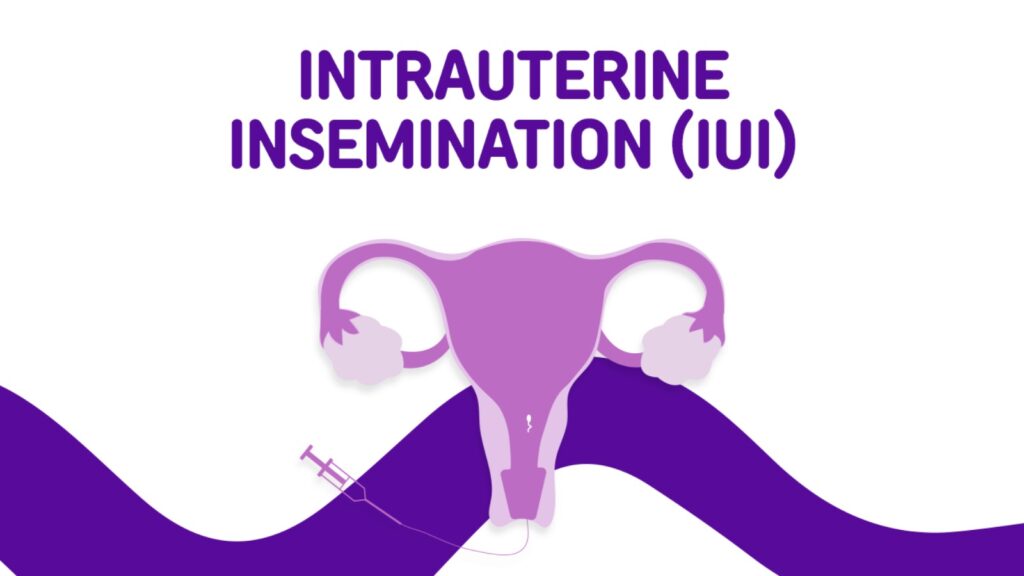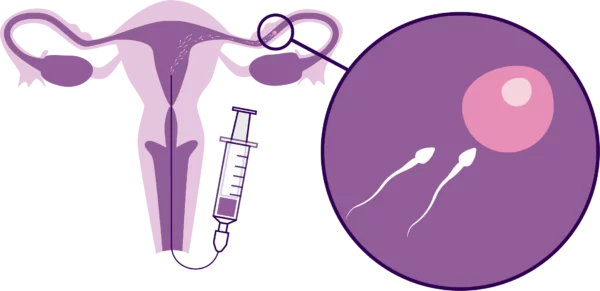What is male infertility?
Infertility can concern both male and female individuals. Specifically, male infertility is a condition that affects people assigned male at birth (AMAB), and that interferes with the ability of their reproductive system to impregnate a person assigned female at birth
If you have male infertility, it means you have repeated unprotected sexual intercourse for over a year but your AFAB partner doesn’t get pregnant.


How common is male infertility?
Infertility affects 186 million people worldwide, and the male partner is the cause in about half of the cases. Some studies show that male infertility affects about 10% to 15% of males in the United States who are trying to conceive.
- Causes and Symptoms
The age of the woman, the reason for her infertility, and the number of IUI cycles she has tried are some of the variables that affect the success rates of IUI. In general, younger women and those with infertility that cannot be explained tend to have better success rates.
- What are the signs of unhealthy sperm?
The primary symptom of male infertility is being unable to have a biological child. But male infertility can also lead to many psychological and emotional symptoms, including feelings of:
Depression.
Loss.
Grief.
Inadequacy.
Failure.
If you or your partner experiences any of these feelings, it’s a good idea to talk to a therapist or psychiatrist.
Sometimes, male infertility can be associated with a low production of testosterone from the testicles. In this case, symptoms such as tiredness, impotence, depression, weight gain and apathy may occur. If you or your partner experiences these symptoms, talking to a urologist who specializes in male infertility or a reproductive endocrinologist can help.
- What causes male infertility?
Many biological and environmental factors can cause male infertility. These include:
Sperm problems, including malformed sperm, low sperm count (oligospermia) and the absence of sperm in your semen (azoospermia).
Genetic disorders, including Klinefelter syndrome and myotonic dystrophy.
Some medical conditions, including diabetes, certain autoimmune diseases that attack your sperm and cystic fibrosis.
Infections, including epididymitis, orchitis and sexually transmitted infections (STIs), including gonorrhea or HIV.
Swollen veins in your testicles (varicoceles).
Cancer treatments, including chemotherapy, radiation therapy or surgical removal of your testicles (orchiectomy).
Testicular trauma.
Hormonal disorders that affect your hypothalamus or pituitary glands.
Frequently Asked Questions
What increases sperm count?
Where is the sperm is collected?
The pricing of women’s health treatments should prioritize accessibility and affordability, ensuring that essential healthcare services, such as gynecological exams, prenatal care, contraception, and screenings for conditions like breast cancer and STDs, are within reach for all women. Our aim is to provide fair and transparent pricing, along with options for financial assistance, should be made available to promote women’s overall well-being and equality in healthcare.
How to know if sperm is healthy?
Sperm health | Pregnancy Birth and Baby
Sperm health is assessed by measuring 3 things: your sperm count, how your sperm move and their shape. The health of your sperm can be affected by your age, if you smoke, are overweight, have a sexually transmitted infection or use anabolic steroids, as well as any heat or injury to your testicles.
What causes low sperm motility?
Which fruit is best for sperm?
Fruits to Increase Sperm Count and Motility
Citrus fruits, such as oranges, grapefruits, and lemons, are not only refreshing but also hold immense fertility benefits. Packed with vitamin C and antioxidants, these fruits protect sperm cells from damage caused by free radicals, thus improving their quality and motility.
